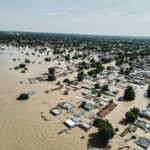A new joint report from the United Nations Children’s Fund (UNICEF) and the International Telecommunication Union (ITU) indicates that 1.3 billion children aged three to 17 do not have internet connection in their homes.
In the report tagged: “How Many Children And Youths Have Internet Access At Home?”, UNICEF and ITU noted a similar lack of access among 759 million (63 per cent) young people aged 15 to 24 unconnected at home.
UNICEF’s Executive Director, Henrietta Fore, said the fact that so many children and young people had no internet at home was more than a digital gap, noting that the situation was a “digital canyon.”
Fore said, “Lack of connectivity doesn’t just limit children and young people’s ability to connect online. It prevents them from competing in the modern economy. It isolates them from the world. And in the event of school closure, such as those currently experienced by millions due to COVID-19, it causes them to lose out on education. Put bluntly, lack of internet access is costing the next generation their future.”
UNICEF/ITU explained that nearly a quarter of a billion students worldwide were still affected by COVID-19 school closure, forcing hundreds of millions of students to rely on virtual learning.
“For those with no internet access, education can be out of reach. Even before the pandemic, a growing cohort of young people needed to learn foundational, transferable, digital, job-specific and entrepreneurial skills to compete in the 21st Century economy.
“The digital divide is perpetuating inequalities that already divide countries and communities, the report notes. Children and young people from the poorest households, rural and lower income states are falling even further behind their peers and are left with very little opportunity to ever catch up,” the report reads in part.
UNICEF noted that globally, among school-age children from richest households, 58 per cent have internet connection at home, compared with only 16 per cent from the poorest households, and that, “The same disparity exists across country income level as well. Less than one in 20 school-age children from low-income countries have internet connection at home, compared with nearly nine in 10 from high-income countries.”
ITU Secretary-General, Houlin Zhao, said “Connecting rural populations remains a formidable challenge.”
Zhao said large parts of rural areas were not covered with a mobile-broadband network and that fewer rural households had access to the internet.
He explained that, “The gap in the mobile broadband adoption and internet use between developed and developing countries is especially large, putting the almost 1.3 billion school-age children mostly from low-income countries and rural regions at risk of missing out on their education because they lack access to the internet at home.”
UNICEF and ITU, therefore, called for urgent investment to bridge the digital divide currently preventing children and young people from accessing quality learning and opportunities online.

 Join Daily Trust WhatsApp Community For Quick Access To News and Happenings Around You.
Join Daily Trust WhatsApp Community For Quick Access To News and Happenings Around You.


